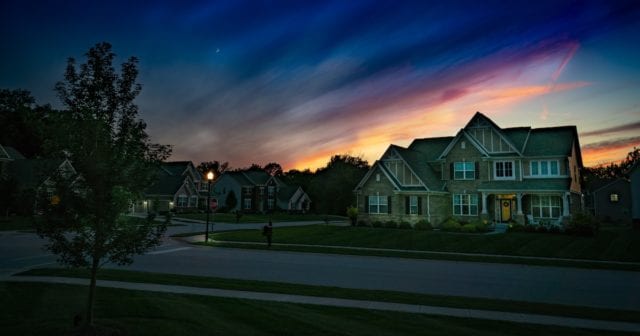Renting your home out sounds like a great way to make money or to hold onto a property you’re not living in. With the right tenants and an understanding the responsibilities you have has a landlord, it can be a sound way to build your income. But that doesn’t mean there aren’t any risks involved.
Before you decide to rent your property, make sure you understand those risks and know how to combat them.
Risk: Accidents, Storms, and Other Disasters
Just like your primary home, anything can happen to your rental — a fire, a tree through the roof, flooding, you name it. And just like the home you live in, insurance can help you pick up the pieces and rebuild. But that only works if you have the correct type of insurance.
The vast majority of landlords need rental property insurance. This is a specific policy to cover the property itself and only the contents you provide for your tenants (like appliances). If you expect your homeowners insurance policy to cover you, think again.
The only time your home insurance covers a rental is if it’s a one-time, short-term, temporary rental. Even then, some insurers require the purchase of a rider. If you’re renting your home out to a long-term tenant or you use AirBnB to make extra cash, you need the right insurance to protect you from potential disaster.
Risk: Bodily Injury and Property Damage
Owning a property, whether you live there or rent it out, comes with the threat of being held liable for accidents. Liability for property damage and bodily injury depends on exactly who was negligent.
If a tenant has a guest over or a service person works on the property, and that person gets hurt because of carelessness or negligence from the tenant (like a cluttered or slippery entryway), they will be liable for the damage.
If, however, the damage was caused because of negligence or carelessness by a landlord — you don’t do something you were responsible for doing — you could be found liable. So if you’re going to rent out your home, make sure you understand the state laws that outline your responsibilities and make sure to take care of the property.
Risk: Lost Rental Income
If your rental property becomes unlivable due to disaster or accident, your tenants will have to find another place to live. You may only lose their rental income for a short while until the property is repaired or you may need to find new tenants. Either way, for some amount of time, you’ll be without rental income.
Many landlords depend on rent to pay the property’s mortgage, taxes, insurance, and maintenance. Going without this money even for a month or two can be financially devastating. While it may be rare, it is a potential risk landlords have to face.
The good news is that you can insure against potential loss of rental income. You’ll need an idea of your annual rental income and should insure at least that amount. While your property is unlivable and being rebuilt, you can file a claim for the lost income and save yourself a lot of stress.
Risk: Damage to Tenants Property
As the landlord, you are not responsible for your tenants property — as long as you’re not liable for the reason it was damaged in the first place. If your property catches on fire or floods during a storm, your insurance covers the property not your tenants property. They’re responsible for their own belongings.
Landlords should at least encourage their tenants to purchase renters insurance. In some cases, you may be able to require coverage as a condition of the lease. It is relatively inexpensive for your renter and makes sure their property can be replaced after a covered loss.
There are risks to any financial endeavor, including renting your home. But if you’re prepared for the worst and take your responsibilities seriously, you can minimize those risks. Before you rent out your home, talk to an independent insurance agent who can explain your coverage options. Contact Charlotte Insurance today.

